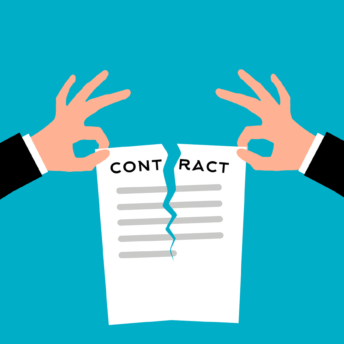Can My Bank Freeze My Account Without Reason?
We’re often contacted by British-Iranians whose bank accounts have been frozen without notice. Large transferred sums can raise red flags with banks, and they may deem it necessary to stop a customer from accessing their money. In many instances, the bank won’t provide a reason for freezing the account, nor will they state when the funds will become available again.
This is a stressful problem that nobody should have to deal with. That’s why Blackstone Solicitors have put together this useful guide. Read on to safeguard yourself against bank account freezes.
Why do banks freeze accounts?
Banks have an obligation to monitor and prevent money laundering operations. The law grants them power to freeze an account without notice when they detect suspicious activity. During this time, the bank may also issue a report to the National Crime Agency. Unfortunately, wrongly the banks freeze accounts just because the funds emanate from Ian and not because they are genuinely considered suspicious.
If a bank freezes an account, they must provide a valid reason for doing so. The bank may be acting reasonably in continuing the freeze due to a court order. However, banks cannot continue to block access without justification. If they do, you may be able to obtain an injunction whereby the court orders the bank to release your funds and reinstate your account.
So, whilst it’s possible to re-access your bank account following a freeze, it can be a lengthy process, and you’ll need excellent legal guidance along the way.
Helpful hints to prevent bank account freezes
- Avoid receiving cash and third party payments into your account
Banks are alarmed by cash and multiple third party payments into an account because it creates an impression of money laundering.
For money transfers from Iran, we advise you to avoid cash payments or moving money between accounts. Instead, hire a UK-registered money exchange company that can transfer the funds into your account from their own business bank. This will minimise future banking difficulties.
Whilst there is nothing unlawful about cash and multiple third party payments, they nonetheless cause banks concern and often require investigation.
- Notify your bank before big payments
If you expect to receive a large deposit into your account or you plan to make a large payment, we advise you to notify your bank in advance of the transfer.
This can be done in writing, and will hopefully prevent the bank from flagging the transaction as unusual activity.
- Be prepared for account closure
Often, after the bank unfreezes an account, they send the account holder a letter stating that the account must be closed within 60 days. There are several steps you can take to protect yourself if this occurs.
a) Firstly, always have at least one other account open at a different bank. This way, you can continue to enjoy banking facilities if one account is suddenly restricted. However, we accept that this is not always possible especially for Iranians.
b) Following an account closure letter, you need to act quickly. Any correspondence with your current bank can affect your application for future accounts and compensation claims, so you should never hesitate in going straight to a professional in these instances.
Blackstone have successfully prevented account closures, recovered blocked funds, and obtained compensation for financial losses and emotional injury for many clients. In our experience, you will not face reprisals for seeking a legal remedy and should never be afraid of filing a complaint.
c) If the bank questions your Iran-related transfers, we advise you to contact us.
If you have used a money exchange company in Iran and received cash and third party payments into your account, you have not violated the law. However, you should have paperwork to prove your funds are legitimate and are not related to anyone on the sanctioned list.
It is difficult to resolve a transfer dispute on your own, and banks often try to rely on their Terms & Conditions to remove you as a customer. Sometimes matters become even more complicated, with individuals even being incorrectly added to the CIFAS list in the past (suggesting fraudulent activity). We can minimise the risk of this happening by acting as a mediator between you and the bank.
d) If your banking difficulties are related to money transfers from Iran, we advise you to avoid contacting the Ombudsman.
The Ombudsman does not deal with race discrimination and you may unknowingly expose yourself to serious issues including passing the limitation date for bringing a court action against the bank.
Instead, quickly decide whether you would like to seek legal remedies and start the process as soon as possible.
e) Remember that if the bank closes or freezes your account on a discriminatory basis, you only have six months from the date of the discriminatory act to take action against the bank. Therefore, it is important to act quickly.
Disclaimer
Please note this blog provides general guidance and does not constitute legal advice as every case is different. If you have faced account closure, you should consult a solicitor to best understand and protect your rights. Furthermore, in some instances the bank has a justifiable reason for their actions, and not all banks operate in a discriminatory fashion.
Contact us
Blackstone Solicitors have extensive experience in matters affecting the British-Iranian community. We are also experienced in advising UK companies that wish to trade with Iran. For more information regarding our services please visit our Iran Desk or simply call us today on 0161 929 0121 for our Manchester office, 020 3693 4507 for our London office or complete our online contact form.






Leave a Reply
You must be logged in to post a comment.